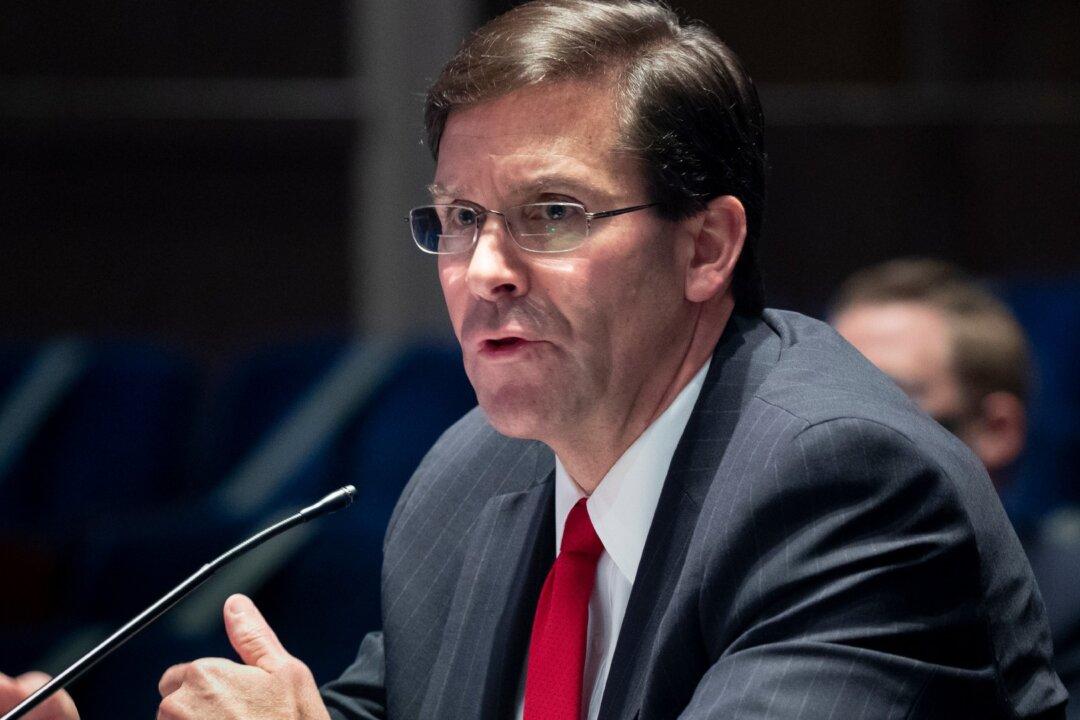The United States’s so-called “One China Policy” is no longer realistic or tenable, according to former U.S. Secretary of Defense Mark Esper.
“It may have been the case in 1972 that the people of Taiwan saw themselves as Chinese, but they don’t today,” Esper said during a July 26 talk at the Atlantic Council, a Washington, D.C.-based think tank.




